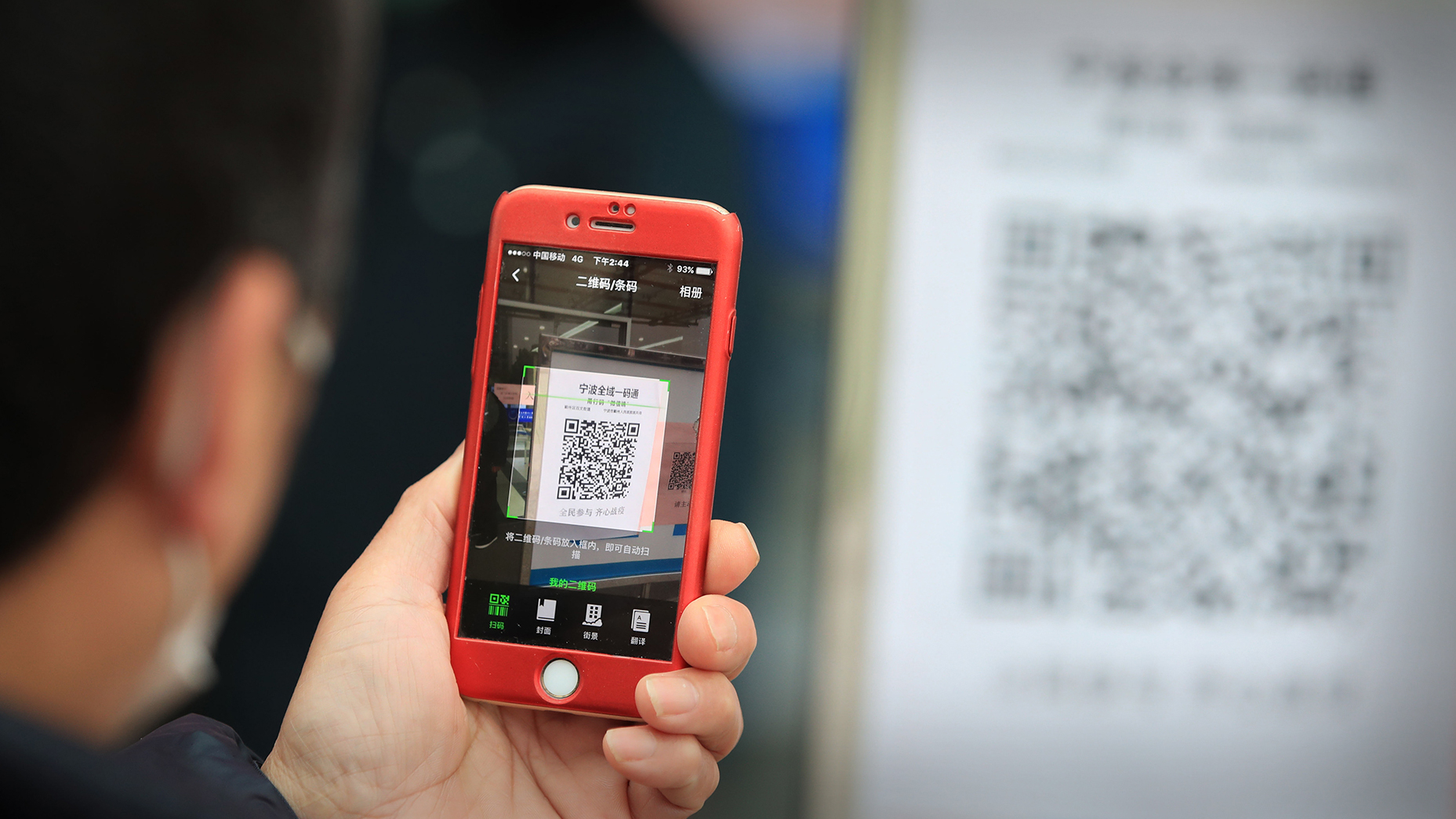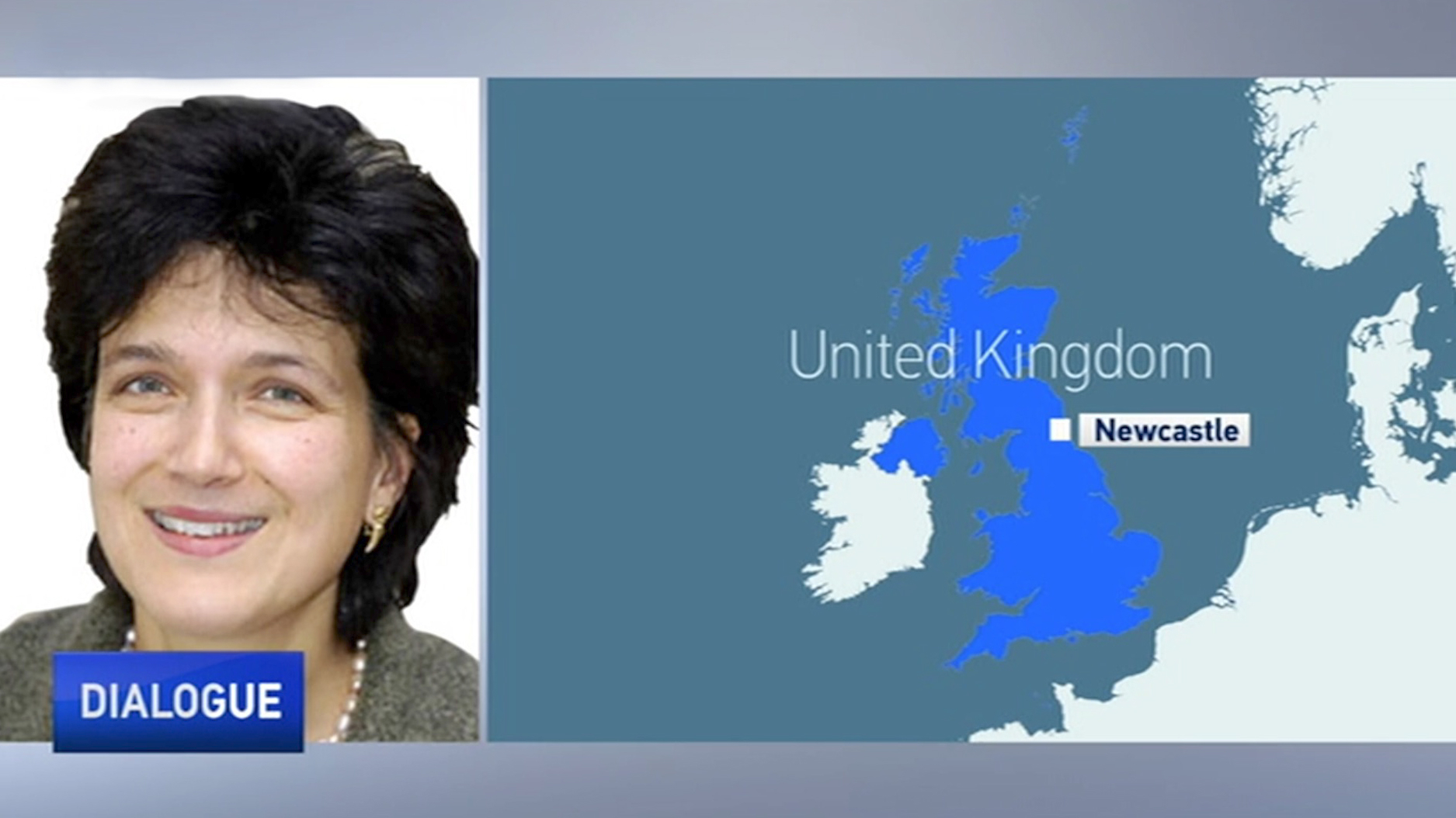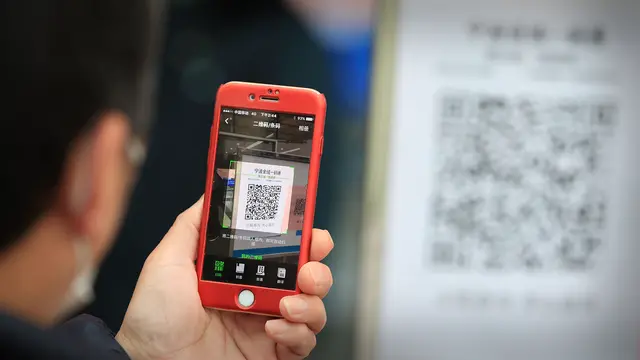00:52

The right to privacy or safeguarding public health – which is more important? And should one be sacrificed for the other? This is one of the biggest questions the world's now facing. As the coronavirus pandemic worsens, many countries have introduced mandatory contact-tracing systems and mobile apps to contain the spread of the virus.
In China, a mobile phone-based QR code health check system is being widely used to curb the spread of COVID-19. Recently Google and Apple have also announced a joint effort to create a Bluetooth-based digital contact-tracing system, which will automatically track contact between users. But will these technologies really help end the crisis?
As a user of the QR code tracking system, Professor Chen Hong of East China Normal University believes it's a good way to help contain the virus, as the tracing system can help monitor suspected cases and even asymptomatic patients.
He also stressed the importance of regulating the use and accessibility of private data. He predicts the system may remain in China for a while, as the key characteristics of COVID-19 are human-to-human transmission and spread.
"This is against a background time of a public health emergency. In such a time of extremity, we need to take extreme measures," Chen said.
Wang Rong, a senior expert at Tencent Research Institute and an insider of the QR code system, told CGTN Dialogue that people do not need to worry about privacy disclosure, as she pointed out that the government is the data-controller behind the system and strictly abides by the principles of the data protection law.
Prof. Allyson Pollock, science director at Newcastle University in the UK, however, believes "this is not the best way of collecting data through apps."
On one hand, the majority of aged people or people of poverty or poor don't use a smartphone, and at the same time, about 80 percent of the old and vulnerable are the victims of the coronavirus – so it's hard to popularize the apps among them.
On the other hand, data governance and privacy protection are the most difficult areas, plus apps don't always get reliable data, she emphasized.
01:30

Dr. Kate Tulenko, CEO of Corvus Health, a U.S.-based health workforce services firm, believes it's quite necessary to introduce the system to bigger communities because of the large-scale mobility among metropolitans.
However, "it's not technology-dependent" if we look at the pandemic from a global perspective; a lot more needed to be done by introducing basic public health solutions like issuing green drink taxes, improving sanitation and so on, she said.
"The outbreak is the sort of renaissance of research," Dr. Tulenko said. It indirectly brings more progress of new technologies like the vaccine technology and new material technology.
"Dialogue" is a prime time English-language daily talk show on CGTN. The 30-minute program covers a wide range of domestic and international topics, providing a balanced and critical perspective on current affairs and analysis within the framework of cross-cultural and multi-disciplinary comparisons.
Schedule: Monday-Sunday
Time (GMT): 03:30, 11:30, 19:30
(If you want to contribute and have specific expertise, please contact us at [email protected].)
 简体中文
简体中文

